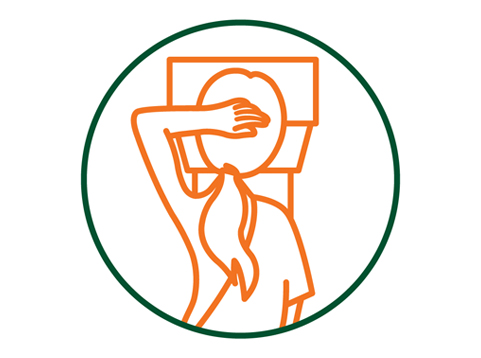Anything that may increase your chance of developing a disease is called a risk factor. Simply being a woman is a risk factor for breast cancer, though the majority of women who have risk factors for breast cancer never develop the disease. But, there are many women with breast cancer who don't have any other apparent risk factors.
We can help assess your risk for breast cancer and help you make decisions about approaches to screening and treatment.
Who is a Candidate?
Factors associated with an increased risk of breast cancer include:
- Age 50 or older
- Personal or family history of breast cancer
- Radiation exposure to your chest or face
- Genetics (particularly BRCA1 and BRCA2 gene mutations)
- Dense breast tissue
- Menstruation history (beginning before age 12 or starting menopause after age 55)
- Drinking two or more alcoholic beverages daily
- Pregnancy history (giving birth to your first child after age 30 or not having children at all)
- Sedentary lifestyle
- Use of oral contraceptives
- Long-term use of hormone replacement therapy (HRT)
- Weight gain and obesity, especially after menopause
If you have a family history of cancer, counseling can help identify your risks and offer support. "Red flags" for possible hereditary cancers include:
- A history of multiple generations of cancer diagnoses on the same side of the family
- Diagnosis of breast cancer before age 50
- Cancer in both breasts
- A male with a diagnosis of breast cancer
- Personal and family history of ovarian cancer
- Having certain ethnic backgrounds
Any of these can signify greater risk.
What to Expect
The National Comprehensive Cancer Network (NCCN) has certain guidelines for who should be referred for a risk assessment and might consider testing. Insurance companies generally follow those guidelines for covering those services. Risk assessment counseling won’t always lead to testing. You may decide not to be tested, or testing might not be indicated, based on your history and type of cancer.
If you think you’re at risk of developing breast cancer, ask your doctor for a referral to the cancer genetics clinic, or call 305-243-6006 to ask for an appointment.
Why Choose Sylvester Comprehensive Cancer Center?
Sylvester is an NCI-designated cancer center. The National Cancer Institute has reaffirmed us as South Florida’s only NCI-designated cancer center. We have been recognized for our scientific leadership, our commitment to training the next generation of cancer researchers and providers, as well as our engagement with the communities that we serve. For patients, this designation translates into greater access to leading-edge treatment options, including clinical trials that prioritize your specific cancer.
Renowned Braman Family Breast Cancer Institute at Sylvester. One of the nation's best breast cancer diagnosis and care programs offering treatments customized to your individual needs.
Breast Imaging Center of Excellence designation by the American College of Radiology. A more precise diagnosis, which then guides a more effective treatment plan.
Questions? We're here to help.
Our appointment specialists are ready to help you find what you need. Contact us today.
